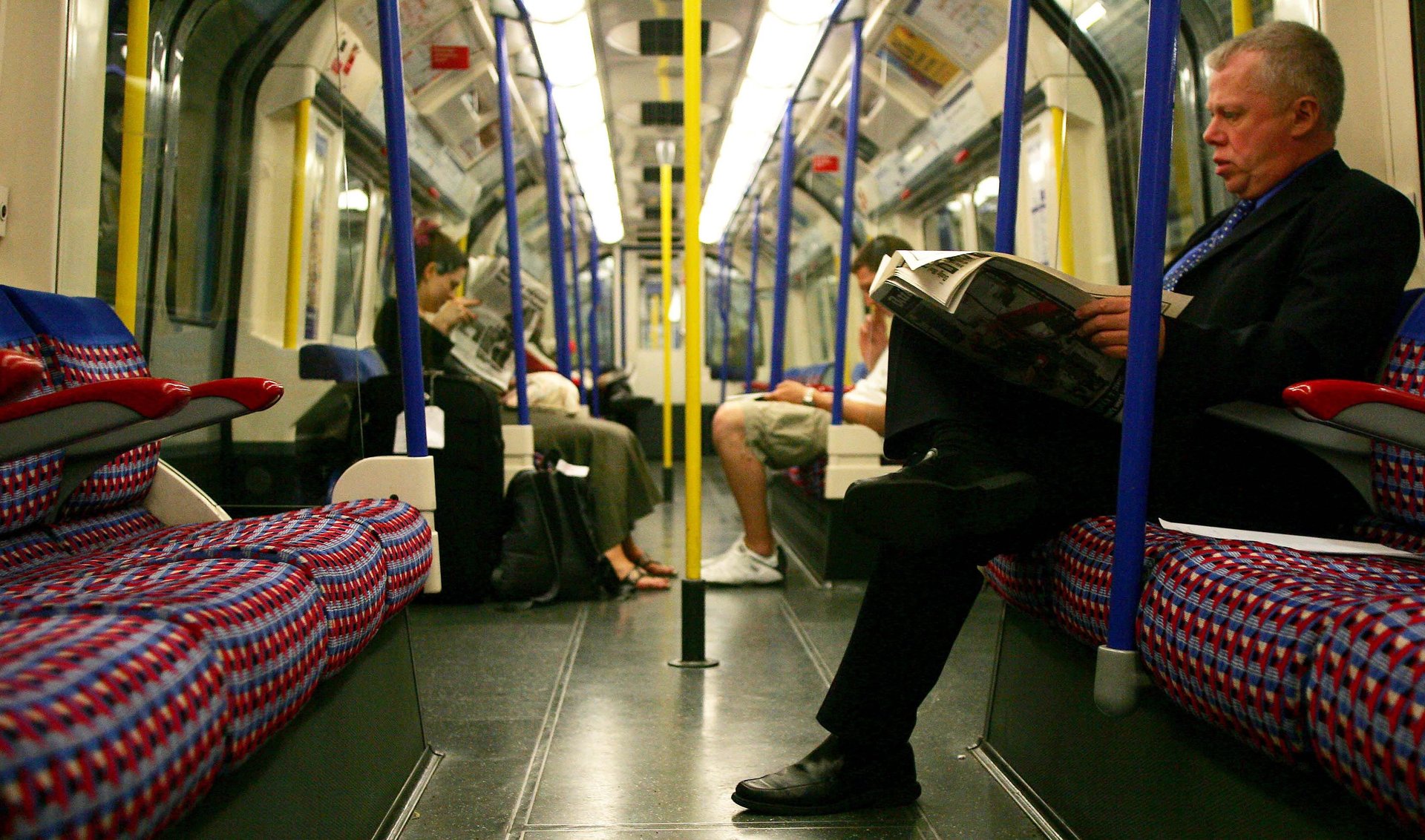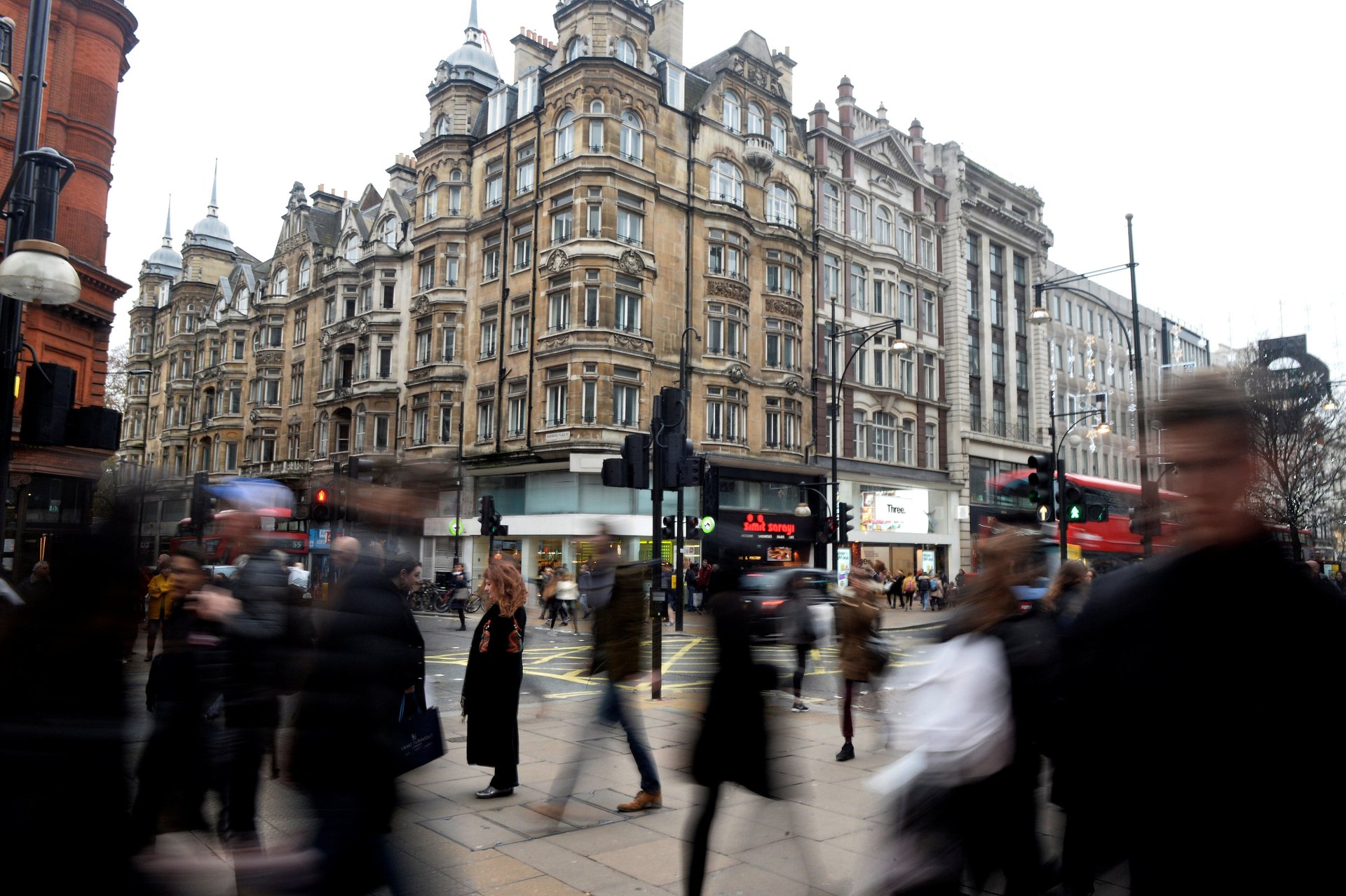I moved from the US to London and saved more money than I could have imagined
In October 2008, I quit my job at a Soho fashion label and bought a plane ticket to Europe. At 23, I was a fresh college grad convinced that the life I should be living was waiting for me far away from New York.


In October 2008, I quit my job at a Soho fashion label and bought a plane ticket to Europe. At 23, I was a fresh college grad convinced that the life I should be living was waiting for me far away from New York.
Little did I know. While I was packing up my bag and heading for London with $200 to my name, the storm that was the financial crisis was about to tear across the continental US and the rest of the globe. Looking back, I’ve sometimes had the urge to shake some sense into that younger girl, certain as she was that she would be rewarded for good grades and hard work. Nowhere would be safe from the Great Recession, including the UK. But I’m glad I never got the chance to change her mind.
I wasn’t going to London for the financial perks, I was going to be immersed in a foreign culture. But along the way, I learned how to navigate the UK and save more money than I could have imagined—despite everyone’s dire warnings, and my own reservations, about living in a country with a big and prominent state.
First: why London? Well, I had met a guy backpacking after graduation. We fell in love and did the long distance dance for a year while he was living in the UK. Finally, we figured out a way to close the gap. I was bristling with ambition and hoping to land an internship that I could transition into a full-time job.
We married, I secured a visa, and I was hired to write a fashion blog for an e-commerce platform. Fashion predominantly pays in perks, so my salary was essentially beside the point. My partner worked in construction and was able to add extra hours on the weekend when he could. We combined our finances almost immediately out of necessity and we both took on odd jobs and hours to prevent the grim reaper of overdraft.

Hands-up, I’m the type of person who over-uses the word feel, champions mantras, and posts mostly about my favorite books and poetry. I’m as right-brained as a person can be, equipped with high school-level math skills. But I knew I had to figure out the numbers of living abroad, totally retool my financial strategy, and learn fast if I wanted to stay in London. My boyfriend was a quick study, cooking up one pot-wonders that we ate for days, skipping gigs with his friends and contributing weekly to our savings. But I’ll admit, the transition was steep. Prioritizing long-term goals meant little instant gratification. I wanted to enjoy all that England had to offer together, but first I had to show I could hack it, save diligently, and work my way up to a better pay grade.
We experienced wins and losses at every turn. At the supermarket, we found groceries to be more expensive in the UK than in New York, but oddly, going out to dinner was not. The wet reality of living on an island leveled four seasons into two, but that meant our energy bills rarely fluctuated throughout the year. No one we knew abroad even owned an air conditioner, thanks to the seven days of summer England averages each year.
The cozy blue seats on the London Underground are filled with posh businessmen and freelancers alike. But unlike New York, the service is not one-price-fits-all, so to bypass potentially costly travel, we chose our apartment carefully. As foreigners, our family and social obligations were comically low, plus, we weren’t constrained by preconceptions about neighborhoods. So we moved to be closer to work.
In our new home, we kept iterating to make our expenses suit our budget. We settled in a one-bedroom in a leafy corner of town, twenty minutes from Central London. Our rent was half of what we would later pay for a similar sized place in Manhattan’s Upper West Side.
Britain’s privatized rail network, which provides major transport channels through the UK and is the subject of fierce debate, are pricey, even when you book ahead. We didn’t see very much outside of London for this reason. Instead, we discovered plane tickets to warm, sunny beaches in Spain and Italy were less expensive than stay-cationing in England. We chose accommodations with kitchens, and mostly planned trips that coincided with my assignments for work.
Social media was anything but encouraging. Even after I’d been gone for several years, I was still dogged by messages from former classmates and acquaintances, cautioning that Europe was, in fact, worse off than America financially, the UK was doomed, and I’d do well to return home and scrape together any employment I could find.

I ignored the dire predictions. I hopped around at work, editing content for a TV channel’s web site before moving to an international publishing company. The salary was equal to that of an entry-level accountant, which seemed pretty cushy by previous standards. We were finally saving, socializing and living comfortably for a couple approaching thirty.
But ultimately, the pull of family was too strong, and in 2014, I found myself on a plane back to the US, where the economy was dusting itself off. I accepted a job with the same publishing house I had worked at in London, earning almost the exact same amount of money. This allowed me to use my salary as a control in this little financial experiment.
In the UK, I was paid monthly, a standard practice for full time employees. Each month, 23% of my pay was deducted for things like local taxes and National Insurance, which covers pension and healthcare, including a generous maternity allowance of up to 39 weeks. But in the US, my tax bracket meant that 33% of my pay would be taken out every two weeks, and there was minimal maternity leave. Without the fall-back of national healthcare, we tried to compute which type of plan would be best for our present and future needs. Raising a family had always been our Someday plan, but Someday was starting to seem very far away.
Once home, we learned to decode deductibles and benefits, manage travel expenses, and arrived at the conclusion that Brooklyn was better for our growing family. In a lot of ways, we had to start over again, only it stung more this time being a stranger and a native. Eventually, I made the jump to freelance, which afforded me the flexibility I had grown accustomed to in England, while my husband has embraced the entrepreneurial spirit of the States.
At the end of the day, rent goes up and down, salaries too. Transport, utilities, and other expenses are forever in flux and can be tinkered with to suit different financials. The single biggest shift in our household expenses boiled down to the amount we paid into social initiatives, like the NHS. But contrary to the warnings and misgivings about the UK’s costly social democracy, supporting the public good, while being smart about our spending, turned out to be pretty good for our wallet, too.